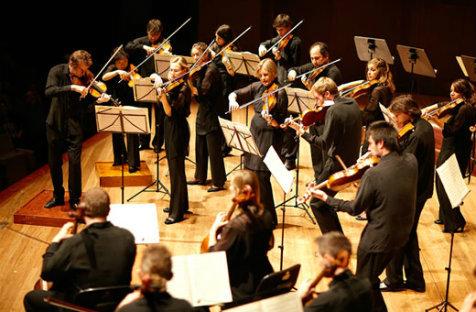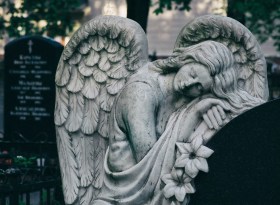One was a tad perturbed by what came over the loudspeakers at the City Recital Hall, just before the commencement of the latest Australian Chamber Orchestra concert. It wasn’t the generic warning to refrain from making too much of a bronchial racket, nor the foreboding command to switch off all electronic devices (which often makes me wonder if the venue would require pacemakers to be disabled as well). Rather, it was the news that the first half of the evening’s concert, composed of Visions fugitives by Prokofiev and Shostakovich’s Piano Concerto No. 1, were to be played without a break. ‘The start of the Shostakovich,’ said the mysterious voice from above, ‘will be signified by the entrance of the trumpet’.
‘Oh dear,’ this critic thought, a bit like Piglet in Winnie the Pooh, sensing a disaster coming on faster than a freight train in a rush. Eeyore made an appearance too, his pessimistic side spurring desperate thoughts – ‘they’re being experimental again! Why can’t they leave well enough alone?’ (Other experiments, earlier in the year, have not been as successful as the ACO might have liked.) Yet this time around there was a glorious pot of honey, waiting to be eagerly scooped up – the two pieces were a perfect fit for each other.
The Prokofiev – Visions Fugitives – isn’t as abrupt as its 19 movements in 20 minutes might make it seem. It swivels back and forth between quasi-pastoral dips and intense bursts of fever. One had the image, in the slower movements, of a Miyazaki animated film – the kind of pleasant countryside with a touch of magic underneath the soil. Pianist Steven Osborne proved himself more than up to the task with his performance, notable for its utter clarity and light glidings of touch when needed. There was a synthesis to the whole that other orchestras would have failed to achieve, and the fact that the ACO did achieve it makes it something very special indeed.
Then, the trumpet came, stage left, David Elton walking to the front. Instantly the dynamic changed, as if the Prokofiev was merely an engrossing prelude to the Shostakovich concerto, as if all the threads had been braided into a rope and now the whip was being cracked. The performance was characterized by such an energy, such an ironic joie de vivre, that the Hall was engorged with an irresistible inertia. Ending with a bang, the audience duly applauded – louder than any audience has in quite some time – and when the soloists made their way off stage the applause didn’t drop a decibel, and again maintained its ferocity for a second curtain call. Osborne came back to the stage to play an encore – after apologising for its non-classical nature – of a Radiohead song, which was a quiet antidote to the previous excitement.
It didn’t matter what was on after the interval, as one was sated for the night. And indeed, anything that came after faced a nigh impossible task of pleasing to the same extent that the first half had. Shostakovich’s Octet provided a welcome introduction, while Tchaikovsky’s sextet Souvenir de Florence, arranged here for string ensemble, was energising enough, though one feels that, unlike the ACO’s arrangement of Ravel’s string quartet last year, the Tchaikovsky perhaps wasn’t as suited to such exaggerations. But it’s a rare concert indeed when such superb performances as were given in the second half are completely overshadowed.
Rating: 5 stars out of 5
Russian Visions
Australian Chamber Orchestra
Richard Tognetti – director
Steven Osborne – piano
David Elton – trumpet
Sergei Prokofiev – Visions fugitives, Op.22 (arr. Barshai/Tognetti)
Dmitri Shostakovich – Piano Concert No.1 in C minor, Op.35, for piano, trumpet and strings
Dmitri Shostakovich – Two Pieces for String Octet, Op.11
Peter Ilyich Tchaikovsky – Souvenir de Florence, Op.70
City Recital Hall, Angel Place, Sydney
20 November






